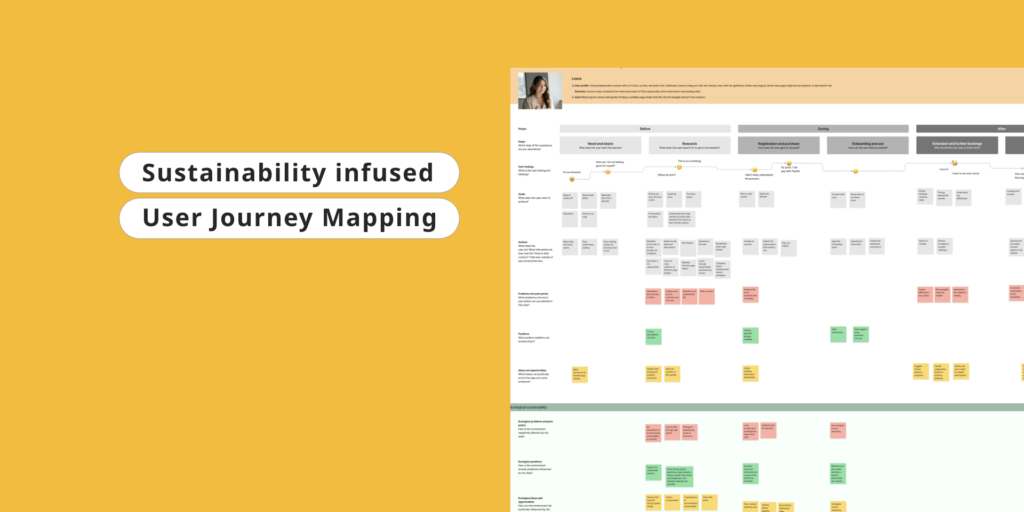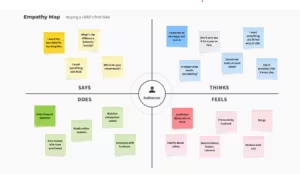In today’s digital landscape, sustainability isn’t just a buzzword – it’s a necessity. As businesses strive to create more eco-conscious products and services, integrating sustainability into every aspect of the design process becomes paramount. In this post we will talk about integrating Sustainability with User Journey maps and learn how it is similar to traditional journey maps.

One powerful tool for achieving this is journey mapping. Journey maps visualize the user experience, highlighting touchpoints and pain points along the way. By incorporating sustainability into your journey maps, you can identify opportunities to reduce environmental impact and create more sustainable user experiences.
So, how do you integrate Sustainability with User Journey Maps? Let’s explore some practical steps:
Steps to integrate Sustainability with User Journey Maps
- Start with Research: Begin by gathering data on your users’ behaviors, needs, and pain points. Consider how sustainability fits into their lifestyles and values.
- Map the User Journey: Create a visual representation of the user journey, from initial awareness to post-purchase experience. Identify key touchpoints and interactions.
- Highlight Opportunities: Use your journey map to pinpoint areas where sustainability can be integrated. This might include reducing waste, promoting energy efficiency, or incorporating eco-friendly materials.
- Collaborate Across Teams: Sustainability is a team effort. Work closely with designers, developers, and stakeholders to brainstorm innovative solutions and ensure buy-in throughout the process.
- Test and Iterate: Once you’ve implemented sustainability initiatives, monitor their impact and gather feedback from users. Use this data to refine your approach and make continuous improvements.
Sustainability isn’t just about products – it’s about processes too. With environment-centered design, we’re reshaping the way we approach user journey maps.
By infusing sustainability into each step of the journey, we gain valuable insights into the ecological and social impacts. This method not only highlights areas for improvement but also uncovers opportunities for positive change.
Checkout this Figma Customer Journey Map with Sustainability
Environment-centered design empowers you to reduce negative effects and increase the sustainability of your project, ensuring a brighter future for all. Let’s start building a greener tomorrow, one journey map at a time.
By bringing sustainability into your journey maps, you can create more environmentally friendly user experiences that resonate with today’s eco-conscious consumers. Start integrating sustainability into your design process today and pave the way for a greener future.




